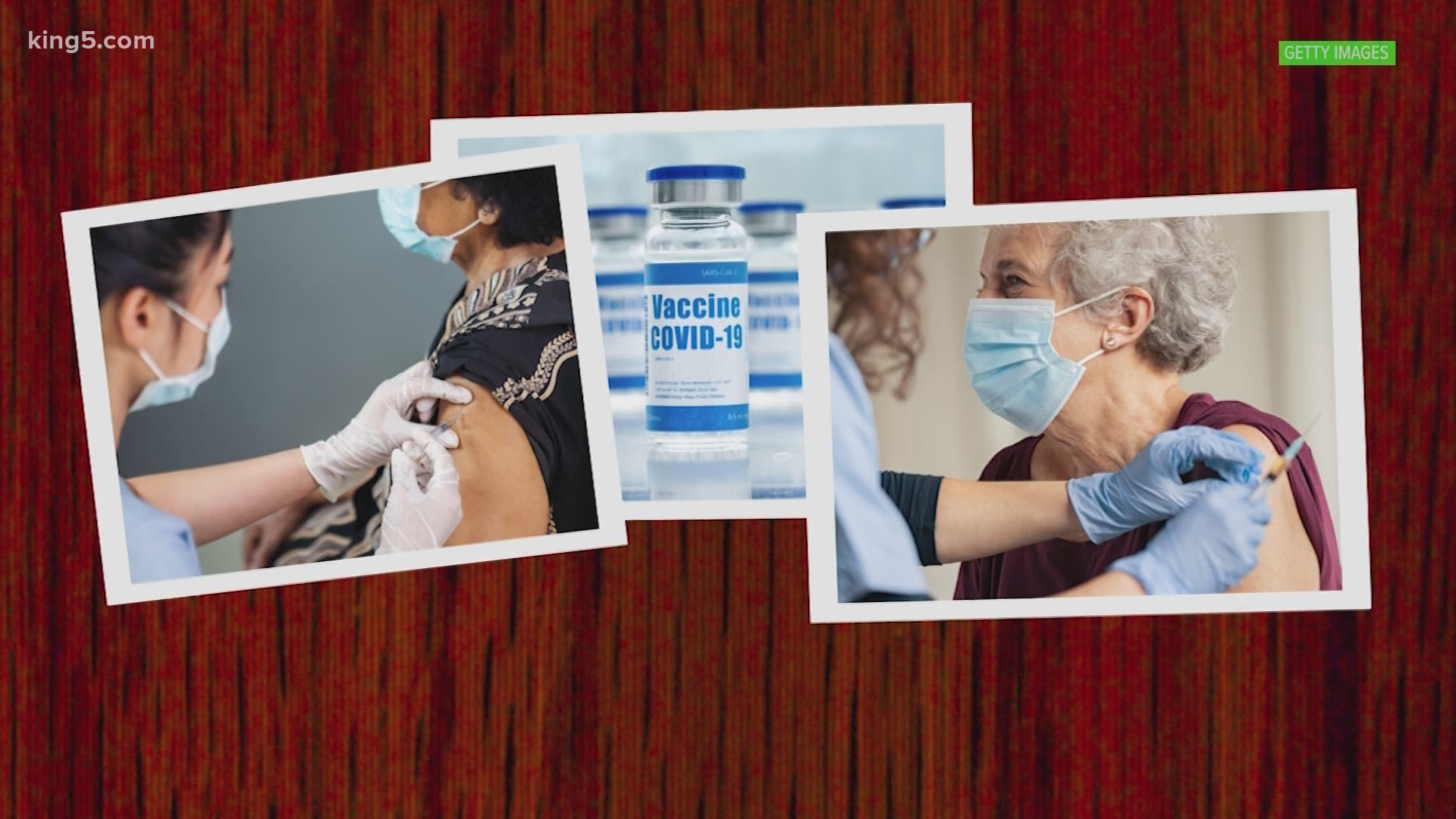SEATTLE — There have been many reports of people having trouble scheduling an appointment for their second dose of the COVID-19 vaccine. This can lead to a delay getting fully vaccinated, but how long can you wait between getting your first and second doses? And what happens if your appointment gets scheduled before the waiting period between shots is up?
The short answer is yes, it is OK if you have to wait a little longer than the recommended time between the two vaccine doses. It’s also OK if your appointment for your second COVID-19 vaccination is scheduled a few days before the waiting period is over.
The Centers for Disease Control and Prevention (CDC) recommends health care providers give the second dose of the Moderna vaccine four weeks after the first shot. Doses of the Pfizer-BioNTech vaccine are supposed to be given three weeks apart, according to the CDC.
To verify, we looked at the Moderna and Pfizer COVID-19 vaccine trials, a new study from the United Kingdom, and consulted with Dr. Larry Corey, a nationally renowned vaccine expert at Seattle’s Fred Hutchinson Cancer Research Center who is coordinating all of the vaccine trials in the U.S.
“The [COVID-19 vaccine] studies were actually done with a three- or four-day window,” explained Corey. “So, when it says day 21, it could be 17. I would not get [the second dose] on day 15 or 16, but you know, a couple of days here or there… it’s not going to make a difference.”
However, experts, including Corey, stress the importance of getting the second vaccine dose on time. But Corey said you can wait longer if you have to.
“The key issue is to get the second dose,” said Corey. “[Waiting for an extra] week, two weeks, three weeks, four weeks, even five weeks is going to be fine.”
In a recent study in the UK, participants were purposely delayed from receiving the second dose of the vaccine. The study, which was published in the Lancet, indicated waiting longer actually strengthens the power of the second shot.
However, that study includes the AstraZeneca COVID-19 vaccine, which has not been approved for use in the United States. For that reason, along with the likelihood that delaying appointments could result in missed appointments altogether, Corey said Americans should not unnecessarily delay getting their second dose of the vaccine.
“Especially [with the mutations in] these new variants,” said Corey. “It requires more antibodies, and I really want to make sure that people get two doses.”
We can verify that you should get your second vaccine shot as close to the target date as possible, but a few days before or after is OK, and a few months after should be OK, too. But you should go back at some point near the recommended time, or you won’t be properly protected against the virus.

